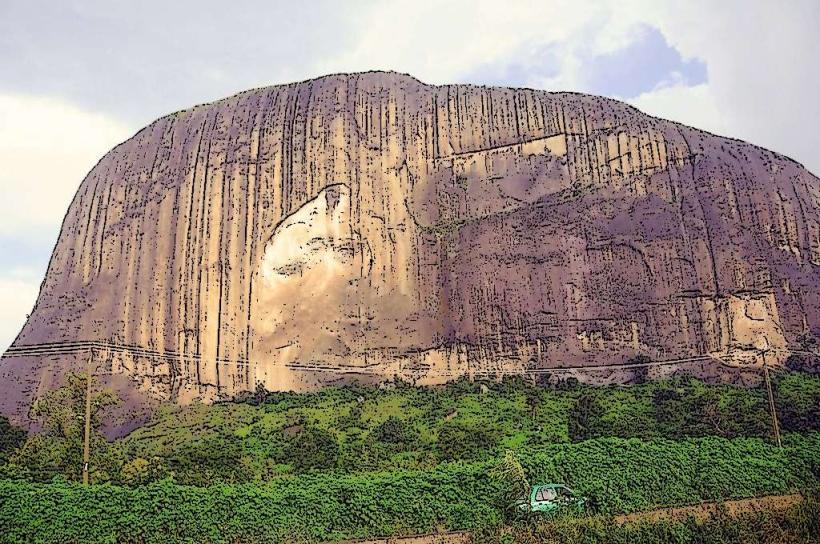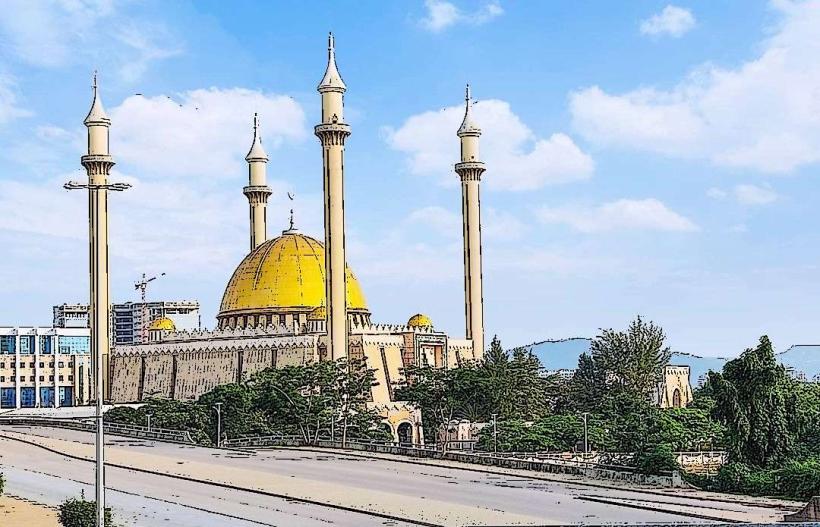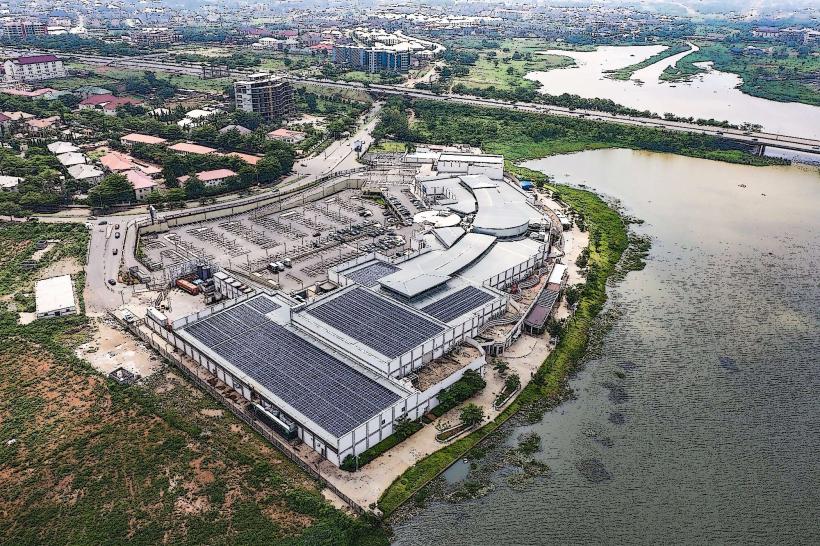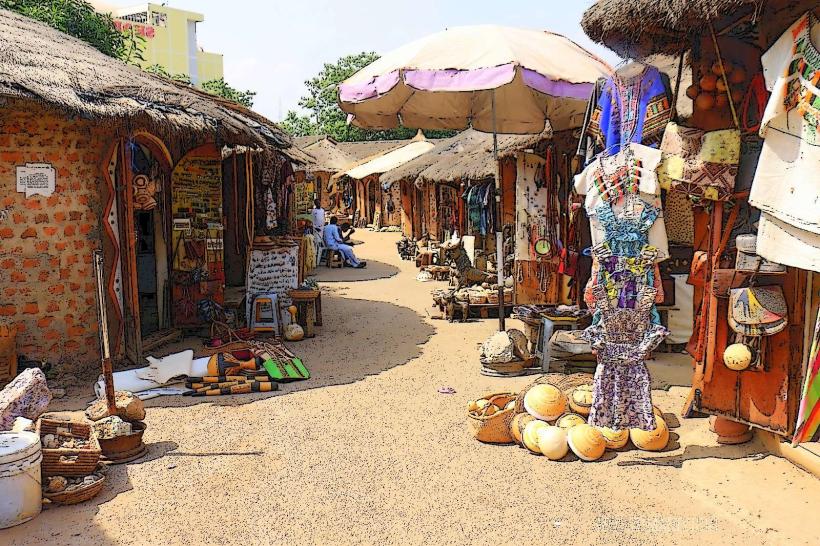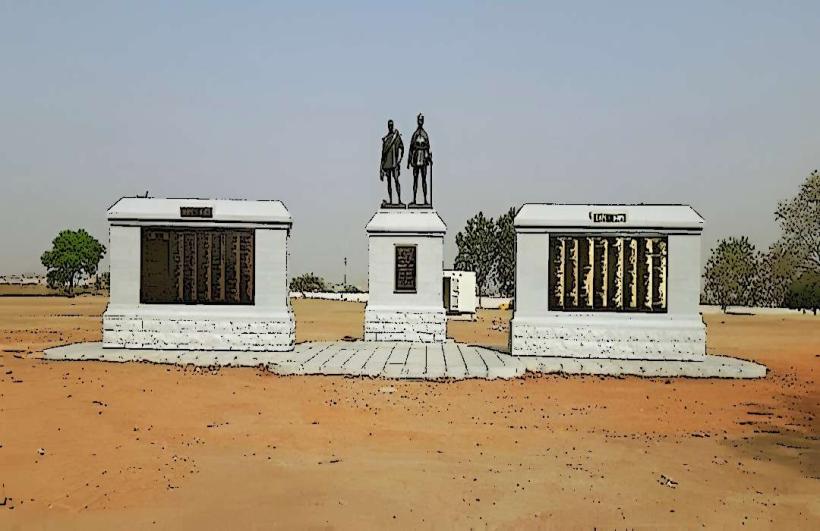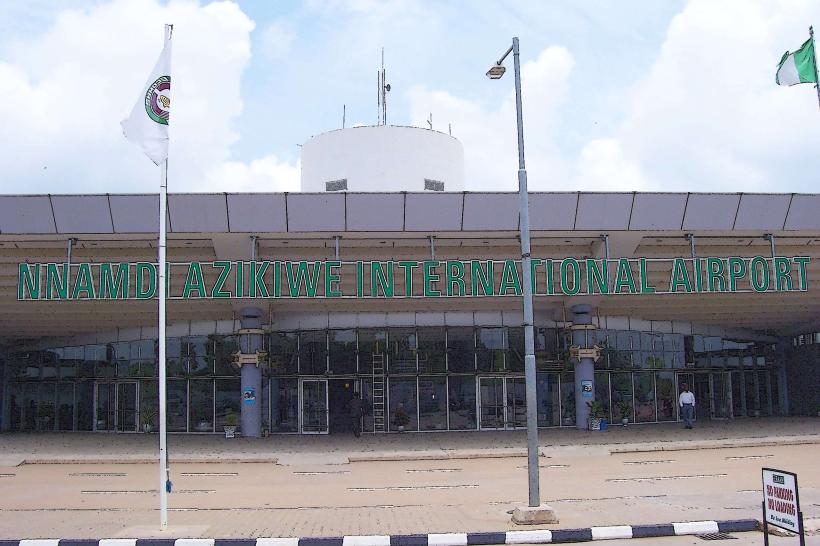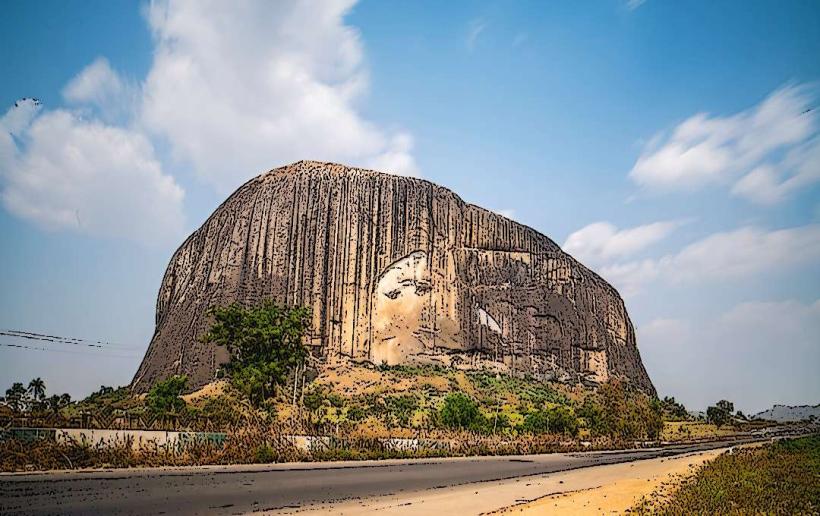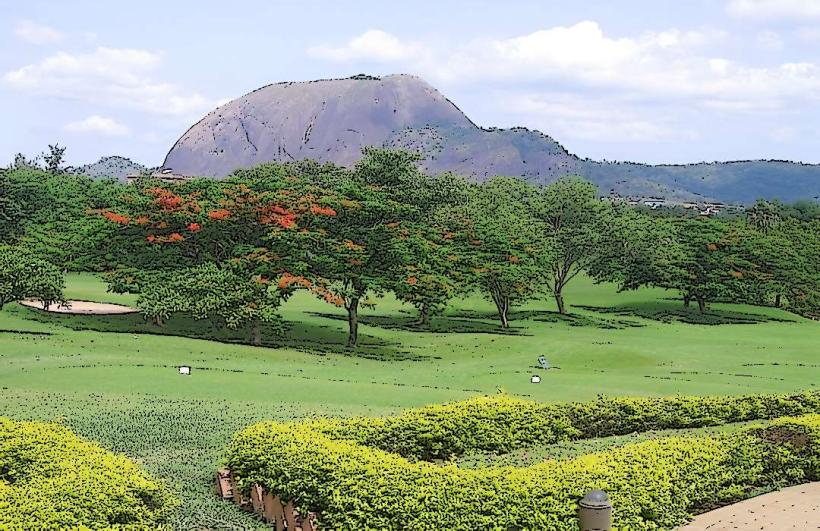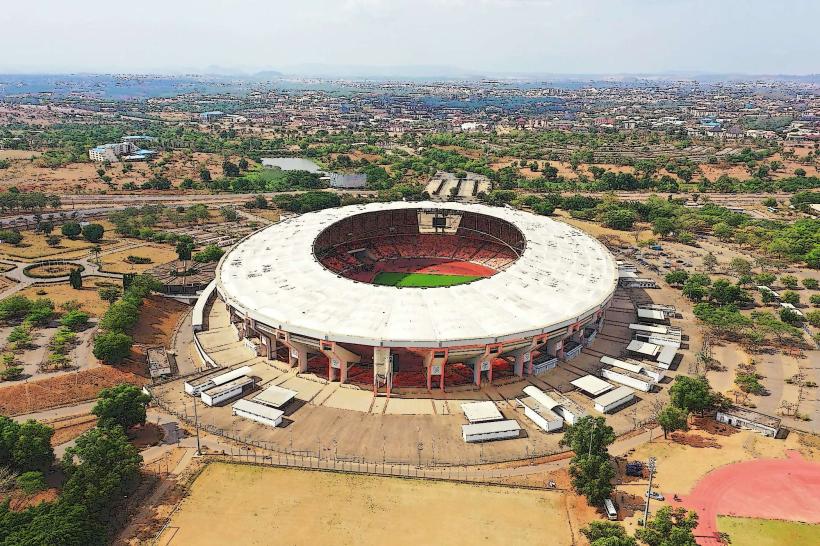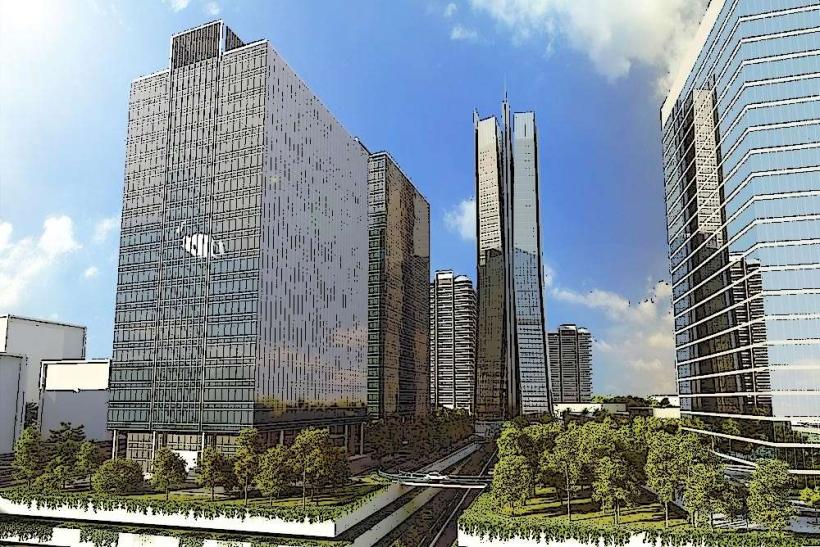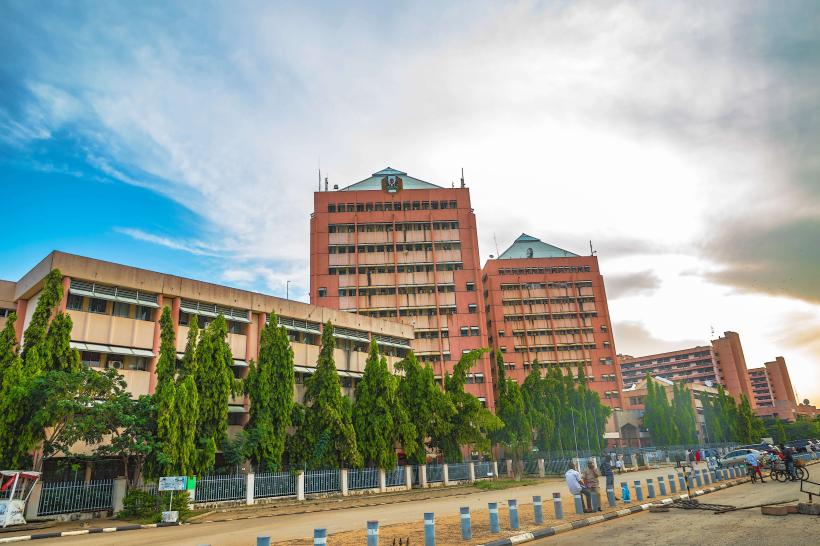Information
Landmark: Millenium ParkCity: Abuja
Country: Nigeria
Continent: Africa
Millenium Park, Abuja, Nigeria, Africa
Millennium Park is the largest public park in Abuja, Nigeria, offering a serene escape from the hustle and bustle of urban life. It is located in the Maitama district, one of Abuja's most prestigious areas. The park is a symbol of nature, culture, and tranquility, providing a peaceful retreat for both locals and visitors.
1. History and Inauguration
Opening: Millennium Park was officially opened on December 4, 2003, by Her Majesty Queen Elizabeth II during her visit to Nigeria. This event marked the park as a notable project, symbolizing the development of Abuja and its recognition as a capital city.
Designer: The park was designed by the Italian architect Manfredi Nicoletti, known for creating spaces that harmonize with their natural surroundings.
2. Size and Layout
Area: The park spans an impressive 32 hectares (about 79 acres), making it the largest park in Abuja.
Design Structure: The park is divided into two main sections by a river:
Natural Habitat Section: This part highlights Nigeria's diverse ecosystems, such as mountain vegetation, savanna, deciduous forests, and tropical rainforests. It is designed to showcase the country’s rich biodiversity and includes terraced landscapes, greenhouses, and habitats for butterflies and tropical birds.
Formal Garden Section: This section, located near the park’s entrance, is designed in a traditional Italian style. The central path is paved with white travertine, flanked by fountains, leading toward a Cotton Tree-a symbolic link to the nearby Aso Rock, one of Nigeria's most iconic natural landmarks.
3. Flora and Fauna
Plant Species: The park is home to a variety of plant species, providing lush greenery and colorful blooms throughout the year. Visitors can experience the park’s rich flora, including trees, shrubs, and flowering plants native to Nigeria and other parts of the world.
Wildlife: The park also serves as a sanctuary for various species of birds, making it a popular spot for birdwatching. The diversity of wildlife, including butterflies, adds to the park's appeal for nature enthusiasts.
4. Recreational Facilities
Walking Paths: The park features wide, scenic walking paths, ideal for leisure strolls and exercise. The design encourages physical activity while offering beautiful views of the surrounding nature.
Picnic Areas: Millennium Park provides plenty of open spaces for families and groups to have picnics. The park's peaceful environment makes it an ideal spot for relaxation and outdoor gatherings.
Children's Play Area: For families with children, the park has dedicated play areas, ensuring that it is a family-friendly location for visitors of all ages.
5. Cultural Significance
Symbol of Unity: The park holds cultural significance for Nigeria. During its inauguration, leaders from Commonwealth nations planted Ravenala madagascariensis palms, symbolizing unity among the nations. This symbolic gesture reflects the park’s role in fostering international connections and peace.
Public Events: Millennium Park has hosted various public and cultural events, including concerts, ceremonies, and national celebrations. It continues to be a venue for local and international dignitaries to gather and share in Nigeria’s cultural heritage.
6. Attractions and Landmarks
The Cotton Tree: The Cotton Tree near the formal garden section is a notable feature of the park, representing a connection between the park and the iconic Aso Rock. It holds symbolic value as a point of reflection and natural beauty.
Water Features: Fountains and small ponds are scattered throughout the park, contributing to its serene and relaxing atmosphere. These water features add to the park's visual appeal, making it a peaceful spot for contemplation.
Scenic Views: The park offers stunning views of Abuja’s skyline, the nearby hills, and the Aso Rock, creating a perfect backdrop for photography, nature walks, or simply enjoying the tranquility.
7. Visitor Information
Location: Millennium Park is easily accessible from various parts of Abuja. It is located close to the former Presidential Palace, adding to its central position in the city’s landscape.
Operating Hours: The park is open to the public daily, offering a free and tranquil environment for relaxation and recreation. There are no entry fees, making it an accessible spot for all visitors.
Ideal for Families and Nature Lovers: Whether you're looking to enjoy a leisurely walk, have a family picnic, or simply connect with nature, Millennium Park offers a variety of activities to suit different interests.
8. Additional Information
Events and Festivals: Throughout the year, Millennium Park hosts various local and international events. These include cultural festivals, outdoor concerts, and community gatherings, contributing to its status as a vibrant public space.
Accessibility: The park is well-maintained, with facilities for people with disabilities, ensuring that it is accessible to all.
Millennium Park in Abuja stands as a beautiful example of how nature and urban life can coexist harmoniously. Its design, cultural significance, and range of recreational activities make it a must-visit destination for anyone in Abuja. Whether you're a tourist, a local resident, or a nature enthusiast, the park offers an inviting space to enjoy the outdoors and experience Nigeria's natural beauty.

